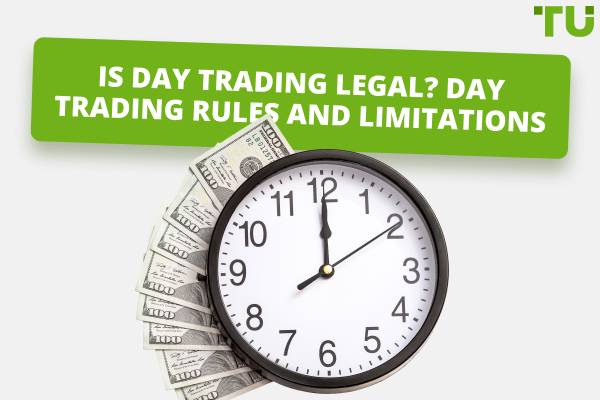Is Margin Trading Taxed?
Trading in financial markets, whether stocks, Forex, commodities, or cryptocurrencies, can be complex. When leverage comes into play, the waters become even murkier, especially regarding taxation. Many traders wonder whether they need to pay taxes on leverage in trading, and the answer is not a simple yes or no. Today, we'll explore the intricate world of taxation in trading with leverage, shedding light on the key factors and considerations you need to take note of.
Yes, margin trading is typically subject to taxation. When you engage in margin trading, you borrow funds to increase your trading position's size. While there are no direct taxes on the act of margin trading, taxes come into play when you realize profits or losses from these leveraged positions. The taxation of margin trading can vary by country and is often categorized as capital gains. The specific tax treatment depends on the trader's holding period, income, and local tax laws.
The specific tax treatment depends on the trader's holding period, income, and local tax laws.
Do you pay taxes on leverage in trading?
The tax rates and regulations governing these gains can differ, with some countries treating them as regular income and others categorizing them as capital gains.
USA
For example, in the United States, the taxation of leverage in trading is subject to specific rules and guidelines. Regarding leverage trading, taxes are typically applied to the profits made from these transactions. These profits are categorized as short-term or long-term capital gains, depending on the holding period.
Short-term capital gains, generated from positions held for less than a year, are taxed at higher rates that align with the individual's income tax bracket. Long-term capital gains from positions held for more than a year enjoy more favorable tax rates.
UK
In the United Kingdom, the tax treatment of leverage in trading is relatively favorable for traders. Private investors who engage in these activities typically won't pay taxes on their margin trades when they initially open a position. Instead, taxes are applied when the trading position is closed and the trader realizes a capital gain or loss.
This unique approach allows traders in the UK to defer their tax obligations until they profit from their trades. However, it's important to note that if trading is not your primary source of income, you may still be subject to Capital Gains Tax on significant gains.
Other countries
The taxation of leverage in trading varies widely in countries outside the UK and the USA, as each nation has its tax laws and regulations governing financial transactions. In many countries, the tax treatment of leveraged trading depends on whether it is considered regular income or capital gains.
Some jurisdictions may have specific rules or exemptions for trading activities, while others may subject traders to higher tax rates. To understand how leverage in trading is taxed in a particular country, consult your local tax authorities or seek advice from professionals well-versed in the local tax code.
Do I pay taxes on CFDs?
When trading CFDs, it's important to note that the profits are generally not tax-free, and the tax treatment can vary significantly depending on your location. In the United States, CFDs are not allowed for retail traders due to regulatory restrictions; thus, there are no specific tax regulations for them.
However, in countries like the UK, where CFDs are widely traded, gains from CFD trading are subject to taxation. If you're an individual trader and you've made a capital gain on a CFD exceeding the Capital Gains Tax allowance, you must file a Self Assessment tax return to declare and pay tax on it. But, if your limited company has generated a profit from CFD trading, then you'll be subject to Corporation Tax. In this case, your company must pay tax on any profits from selling these assets, including CFDs.
The specific tax treatment can vary widely, including the rates and exemptions available, so you must research and understand your local tax regulations thoroughly. Accurate record-keeping and compliance with tax authorities are essential to ensure that you fulfill your tax obligations correctly and effectively manage your tax liabilities.
Is crypto margin trading taxed?
Taxes apply to crypto margin trading. While many tax authorities have not released specific guidance on crypto margin trading taxes, it's essential to note that the general principles of taxation still apply. In many jurisdictions, gains made through crypto margin trading are subject to taxation, either as capital gains or regular income, depending on the specific tax laws.
Typically, profits derived from crypto margin trading are regarded as capital gains, and the taxable event occurs when you close your trading position. This means you'll only realize a profit or loss when you exit your leveraged position. The tax treatment may depend on factors such as the holding period, the amount of leverage used, and your overall income.
Even though dedicated guidance on crypto margin trading taxes may be limited, you can often find relevant information in existing guidelines for margin trading in traditional financial markets and crypto tax regulations.
Best Forex brokers 2024


FAQs
Do I have to pay taxes on leveraged losses?
In most cases, you can offset leveraged trading losses against gains for tax purposes. However, the rules may differ by country, so consult your local tax regulations for precise information.
How do I report leveraged trading income to the tax authorities?
You typically report your leveraged trading income on your annual tax return. Ensure accurate record-keeping of all your trades, including gains and losses, to meet your tax obligations.
Can I deduct trading-related expenses from my taxes when using leverage?
Depending on your country's tax laws, you can deduct certain trading-related expenses, such as platform fees and research costs. Contact a tax expert for advice on permissible deductions.
Are there any tax advantages to using leverage in trading?
While leverage can amplify your gains, it doesn't inherently provide tax advantages. The tax treatment primarily depends on your country's tax laws and how you report your trading income.
Glossary for novice traders
-
1
Options trading
Options trading is a financial derivative strategy that involves the buying and selling of options contracts, which give traders the right (but not the obligation) to buy or sell an underlying asset at a specified price, known as the strike price, before or on a predetermined expiration date. There are two main types of options: call options, which allow the holder to buy the underlying asset, and put options, which allow the holder to sell the underlying asset.
-
2
Cryptocurrency
Cryptocurrency is a type of digital or virtual currency that relies on cryptography for security. Unlike traditional currencies issued by governments (fiat currencies), cryptocurrencies operate on decentralized networks, typically based on blockchain technology.
-
3
Leverage
Forex leverage is a tool enabling traders to control larger positions with a relatively small amount of capital, amplifying potential profits and losses based on the chosen leverage ratio.
-
4
Investor
An investor is an individual, who invests money in an asset with the expectation that its value would appreciate in the future. The asset can be anything, including a bond, debenture, mutual fund, equity, gold, silver, exchange-traded funds (ETFs), and real-estate property.
-
5
BaFin
BaFin is the Federal Financial Supervisory Authority of Germany. Along with the German Federal Bank and the Ministry of Finance, this government regulator ensures that licensees abide by eurozone laws.
Team that worked on the article
Ivan is a financial expert and analyst specializing in Forex, crypto, and stock trading. He prefers conservative trading strategies with low and medium risks, as well as medium-term and long-term investments. He has been working with financial markets for 8 years. Ivan prepares text materials for novice traders. He specializes in reviews and assessment of brokers, analyzing their reliability, trading conditions, and features.
Dr. BJ Johnson is a PhD in English Language and an editor with over 15 years of experience. He earned his degree in English Language in the U.S and the UK. In 2020, Dr. Johnson joined the Traders Union team. Since then, he has created over 100 exclusive articles and edited over 300 articles of other authors.
Mirjan Hipolito is a journalist and news editor at Traders Union. She is an expert crypto writer with five years of experience in the financial markets. Her specialties are daily market news, price predictions, and Initial Coin Offerings (ICO).











